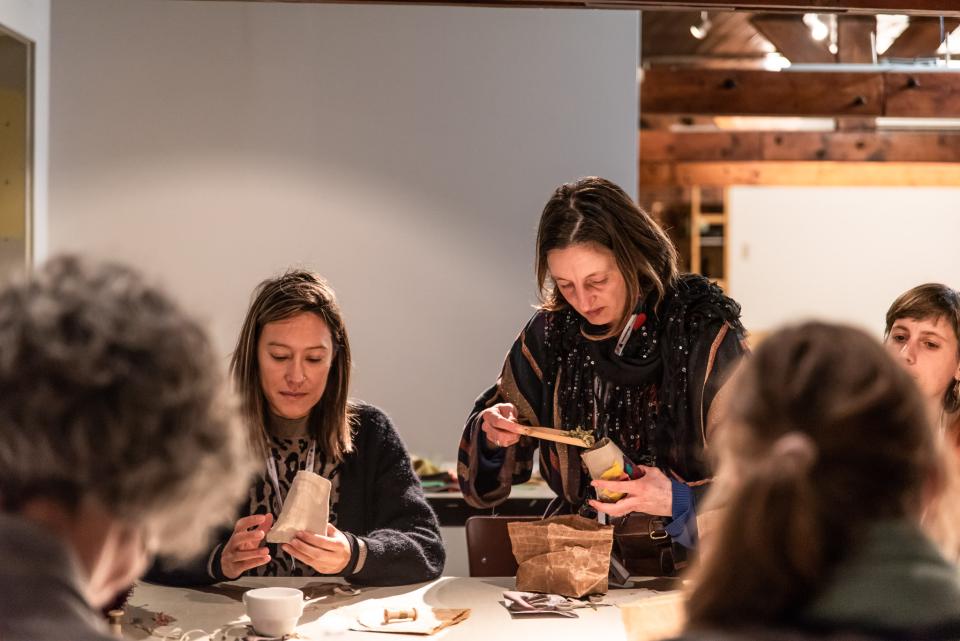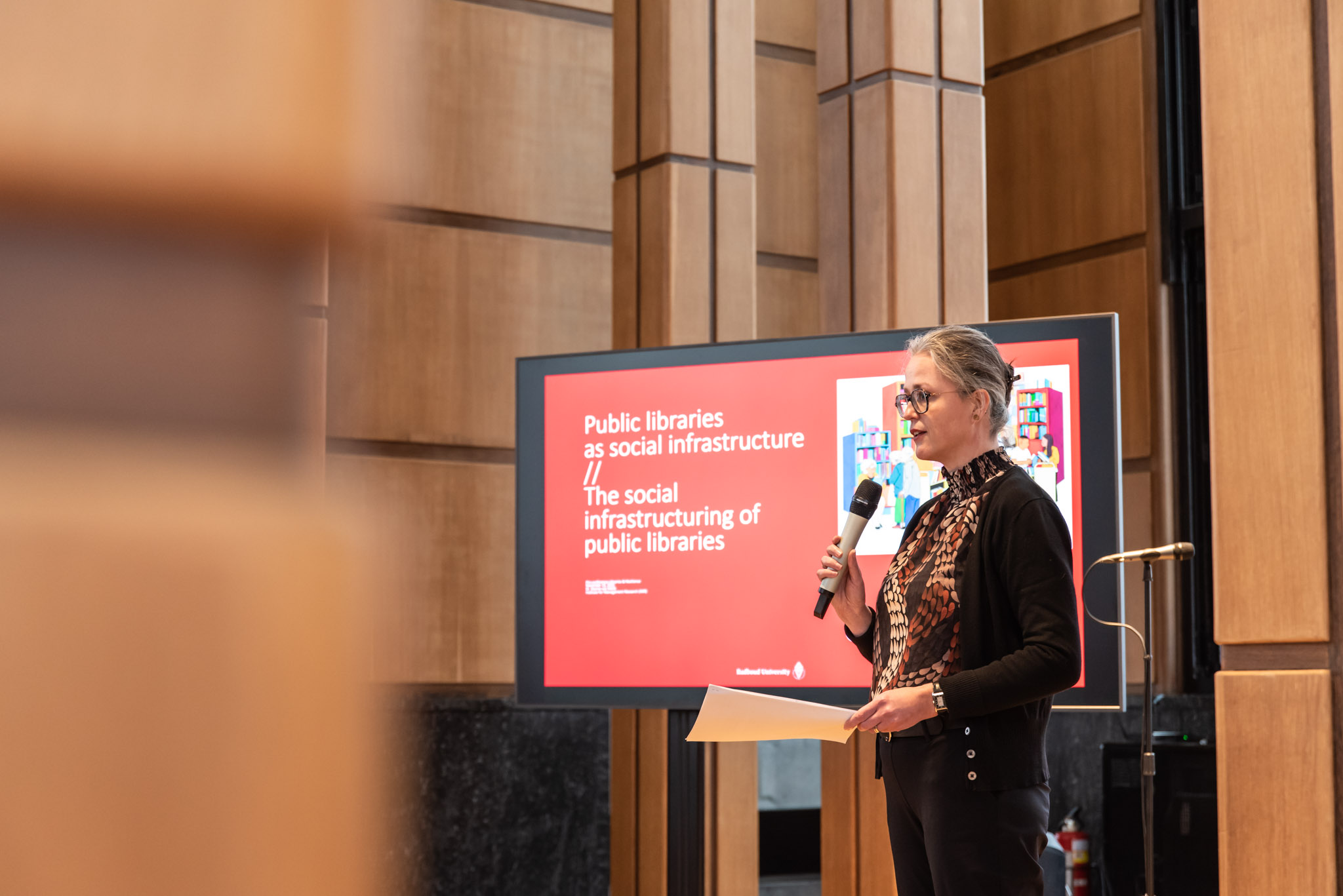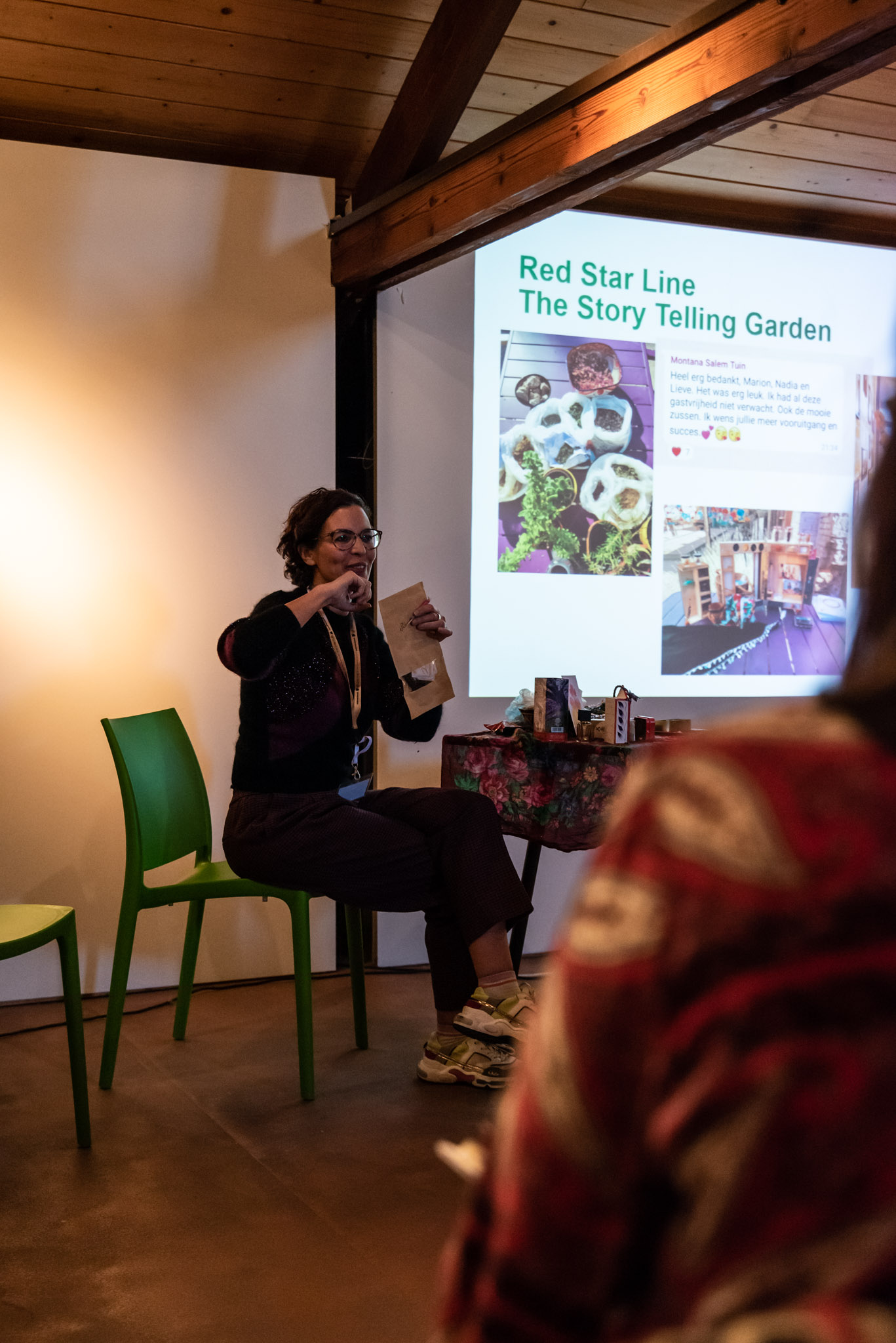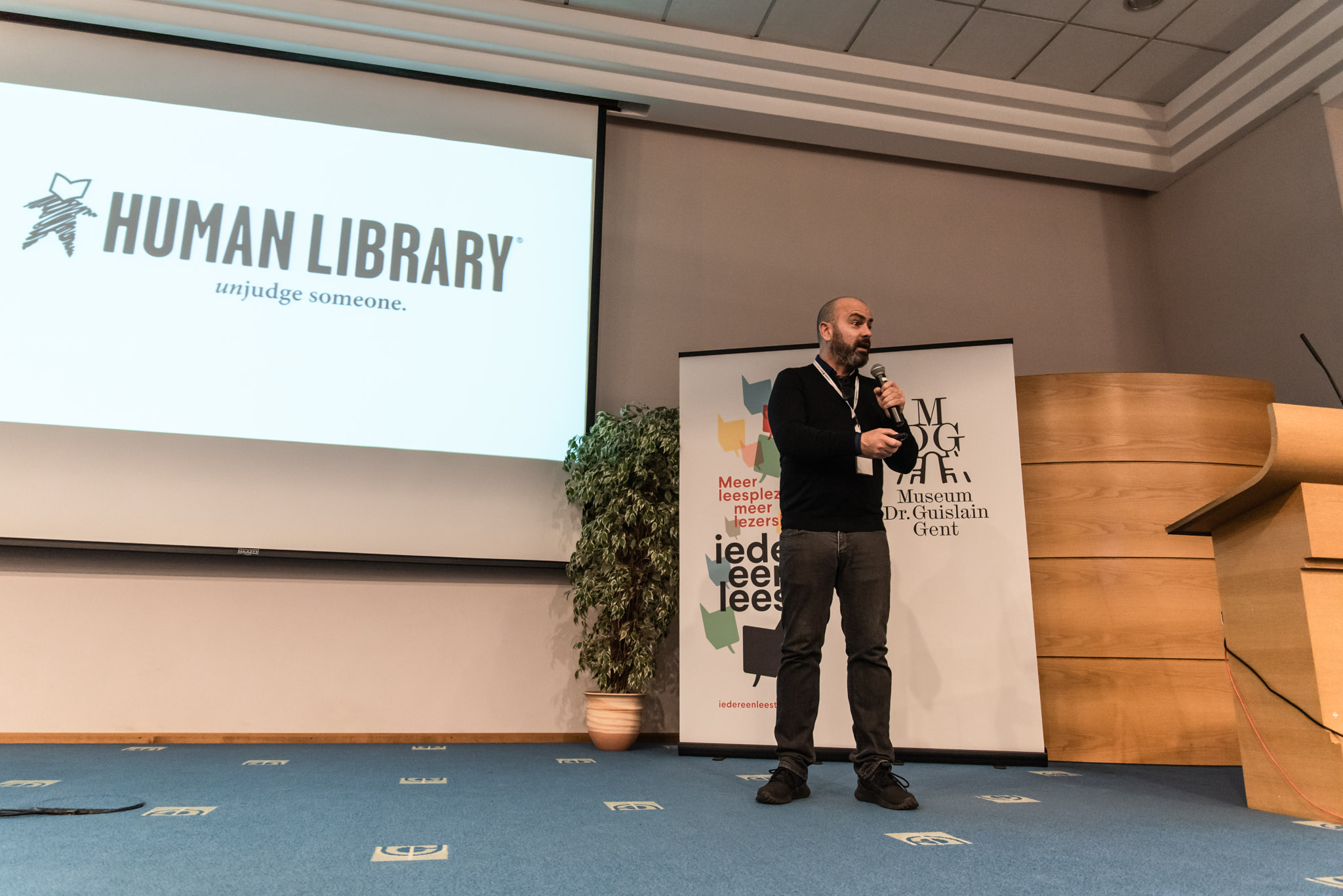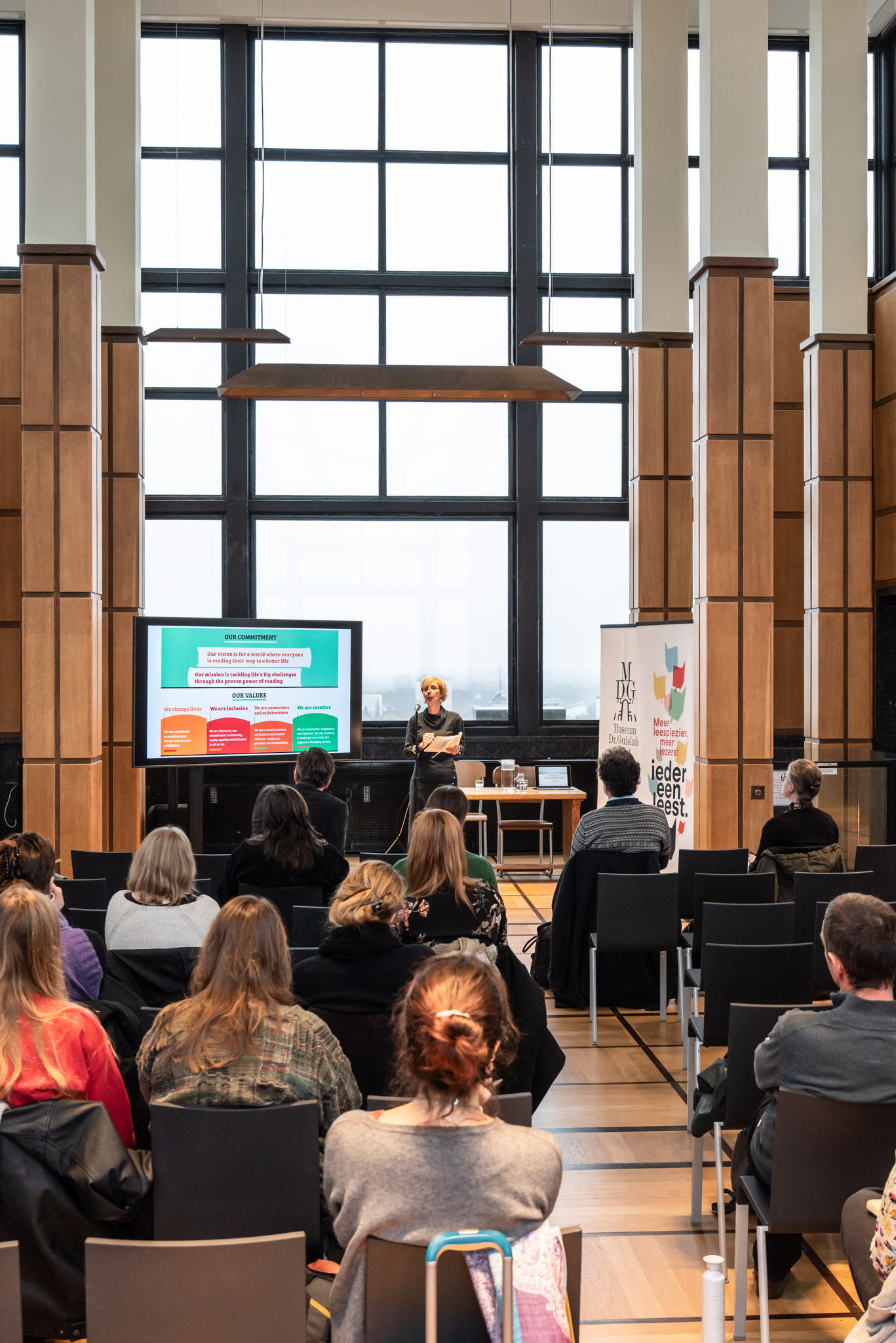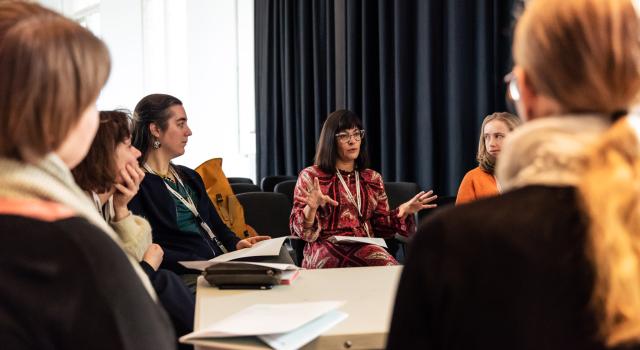The public library: a place where people can connect, more than ever before
In addition to being a treasure trove for book lovers, public libraries are increasingly becoming social hubs. By opening the doors of the library even wider to locals, people can connect with others and build resilience. Discover how libraries are empowering people.
translated into English by Sandy Logan
-> naar de Nederlandstalige versie van dit artikel
This article is a partial report on the international 'Culture & Mental Health' conference, organised by Museum Dr. Guislain and Iedereen Leest from 23 until 25 November 2022. The programme focused on the role of public libraries and reading in terms of resilience and (mental) well-being. Several speakers explained some of the initiatives that are ongoing.
The role of culture in our well-being should not be underestimated. This influence is even more noticeable when these cultural activities suddenly vanish from our lives, as Dr Hans Kluge, the regional director for Europe of the World Health Organization (WHO), observed during the pandemic. One by one, social activities – including culture – were put on the backburner, heaping pressure on young people and their mental health. Research by the WHO (and by the European CultureForHealth project) shows that cultural activities reduce stress, depression, anxiety and health stigmas. In addition, they have a positive influence on our social skills and our skills to communicate about our mental well-being.
(The text continues below the video.)
In addition to relevant research findings, we also need initiatives that bridge the gap between culture and well-being. That is why the City of Brussels, drawing on a study by the WHO in Canada, came up with the idea of prescribing museum visits. The city's cultural department and the Brugmann psychiatric hospital are currently collaborating on a pilot project that will run from September 2022 until March 2023. During this period, GPs can prescribe a museum visit to patients suffering from stress, burnout, anxiety disorders and other mental health complaints. If the outcome is positive, the city hopes to roll out the project further.
Social infrastructure
Prescribed library visits would also fit the bill. According to Dr Rianne van Melik, of the Institute for Management Research at Radboud University (NL), public libraries are extremely valuable as social infrastructure that can be used to improve people's mental well-being. Nowadays, libraries are no longer just places for information and knowledge transfer. They increasingly play a part in the social and cultural fabric and life of cities and municipalities. Sociologist Eric Klinenberg also agrees with this premise:
Rather than fulfilling an instrumental need, libraries have become places where cities can be perceived as inclusive and welcoming. (...) Social infrastructure is needed to feed public life, but also to address and prevent some of the most pressing problems of contemporary city life: combating social isolation, negotiating differences, and creating places for everyone, regardless of their age, race, gender, sexuality or income.
These days, society faces tremendous challenges, to combat low literacy and loneliness. Libraries can play an important part in people's daily lives. To live up to these high expectations, the job description of library staff must change, says Rianne van Melik. But the library team will also need different competencies and new profiles to rise to these challenges: instead of just being information experts, they also have a social role in the community. By working not just for but with members of the community, they can examine together at what the neighbourhood needs in and from the library. That way, libraries can finally become a genuine ‘space of care’.
Collaboration
The garden at Permeke Library in Antwerp is a good example of such a collaboration. Permeke Library, SAAMO and the Red Star Line Museum have joined forces to create a garden at the library, together with women from the neighbourhood. In Borgerhout and Antwerp-Noord, where the library is located, the public space is largely used by men, and was also designed by men. There thus definitely was a need for a (green) space in the city, designed by women, where women could feel at home. Since May 2022, 30 women who live locally have met every week to further expand the existing reading garden in Permeke Library and make it greener. In a sense, they are reclaiming public space. The garden has three functions. It is:
- a green garden, where the women can plant, harvest and ask themselves what ‘meaningful’ green is for them;
- a narrative garden, where they can share their personal stories and experiences with each other and a wider audience;
- a healing garden, a safe and courageous place that empowers them and where they dare to have discussions about things that are more difficult to say.
This example shows how the library's collaboration with other partners leads to special results. The Herstelacademie (Recovery Academy) of Antwerp also regularly collaborates with libraries. Recovery academies exist in 22 countries, offering accessible, short-term courses on living with a psychological vulnerability. They are inclusive, label-free places, where there is room for diversity and where people can meet each other and safely share experiences. “In many ways, these Recovery Academies are very similar to libraries”, emphasises psychologist Tom Vansteenkiste of Recovery Academy Antwerp. “That's why one of our longest-running courses — Write Your Recovery Story — is also organised in a library setting.” This group training consists of six sessions, during which you try to record what has happened in your life in short writing exercises to gain an insight into your recovery process. Participants of the Recovery Academy sometimes also exhibit their work in Antwerp’s libraries.
Living library
The Recovery Academy of Antwerp has also collaborated with Permeke Library and former Antwerp city poet Seckou Ouologuem on the Living Library project, which is still ongoing. This project is based on the ‘Human Library’, which was developed by Danish founder Ronni Abergel. At the request of a music festival, he started the Human Library in 2000. It has since grown into an NGO with a presence in more than 85 countries with more than 1,000 volunteers. “All the volunteers come from stigmatised, marginalized groups, and they discuss their living experience, very much like an open book”, Abergel says. “They have experienced topics that all too often are still considered taboo, such as schizophrenia, sex work, migration, hair loss... They explain how they draw strength from their experiences despite the obstacles.”
You can borrow stories from the Human Library just like you would from a regular library, even if they don’t come in book form, but are flesh-and-blood people. You can consult special ‘books’ in more and more Flemish public libraries (e.g., ARhus, De Krook, Permeke), municipalities, schools, universities, training centres (e.g., Avansa) and on the website of the Human Library. They spark conversations that you would not usually consider having, according to Abergel: “In a safe environment, you may find yourself talking to people that you may not usually be inclined to talk to in daily life. And that’s when you notice that they are not actually that different from you, that they are people, just like you. I hope that the borrowers look beyond their prejudices and feel more empathy for these people. That is also why these volunteers want to participate: they want to be understood.”
Reading friends
The reason why Abergel based the Human Library on a library system is because he couldn’t think of a more inclusive place than libraries. “As long as you follow the rules, anyone can enter a library”, he says. “It's an accessible place and it's usually free.” If you want to appeal to a wide audience, the library is just the right place. That is why libraries and books in the UK are also considered as ‘medicine’ for our mental health. In recent years, The Reading Agency has focused heavily on libraries as places that can offer the right book at the right time and that facilitate meaningful encounters. “Research funded by Arts Council England (2015) shows that library users experience more satisfaction, happiness and meaning in life”, says creative director Debbie Hicks. “Regular library visits are linked to better general health, resulting in total medical cost savings to the tune of GBP 27.5 million a year for English library users.”
“Library users experience more satisfaction, happiness and meaning in life. English library users thus account for total medical cost savings to the tune of GBP 27.5 million a year.”
So it's not surprising that The Reading Agency is relying on libraries to roll out the Reading Well programme (a partnership with Libraries Connected and Arts Council England). These are lists of books that help to deal with (mental) difficulties, such as anger, anxiety, depression, dementia, low self-esteem, grief, insecurity... The varied list of books – from self-help books to autobiographical stories and poetry – have been selected by health experts and experience experts in line with the theme. In some instances, they were recommended by healthcare professionals or teachers, but you can also borrow them yourself from the local library. The initiative appears to be successful, as more than three million “Reading Well” books have been borrowed from libraries since the project’s inception in 2013. The goal is to make those collections accessible in all libraries, schools and community centres across the UK.
All these initiatives which were discussed at the ‘Culture & Mental Health’ conference show that meaningful things can happen if we review the traditional mission of our libraries and make them welcoming places where people can connect. Obviously, books and stories are still the basic raw material on which libraries are founded, but by investing more in their connecting potential, they also become safe havens, a beacon in the local community, where the stories in books and of people play a central role.
